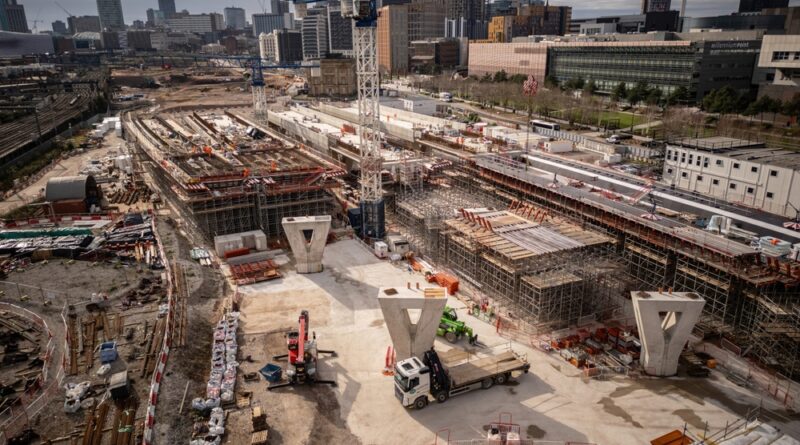RisK of infrastructure spending shortfall of at least £700bn by 2040
A recent report from EY highlights a significant funding gap of £1.6 trillion in the UK’s capital programmes and infrastructure projects through to 2040. This shortfall could jeopardize the completion of essential projects, particularly those focused on energy transition and infrastructure development.
The report, titled Mind the (Investment) Gap, attributes the funding deficit to rising economic pressures, such as inflation, that have dramatically increased project costs, and the substantial investments required to meet the UK’s long-term strategic, environmental, and social goals.
EY’s analysis projects that if the UK maintains its historical levels of capital spending, it would commit around £1.8 trillion by 2040. However, this falls significantly short of covering the total identified project needs, leaving an additional £1.6 trillion unfunded. The government may address part of this shortfall, but EY predicts that only half, or £700 billion, of the gap will be met by public investment, leaving a major deficit.
Closing this gap would require private sector investment in UK infrastructure to more than double. The report also warns of future risks, such as geopolitical tensions and further cost overruns, which could exacerbate the deficit, potentially adding nearly £1 trillion.
Economic challenges, such as persistently high inflation, have already inflated project costs. Producer Price Inflation (PPI) in the UK peaked at 24.4% in 2022, meaning that a capital project initiated in 2016 became nearly 46% more expensive by 2022. This has been compounded by the sharp increase in the UK’s debt interest payments, tripling from £38 billion in 2019-20 to £104.7 billion in 2023-24.
According to Mats Persson, Partner at EY Parthenon, “Nearly all Western countries are grappling with a growing gap between the investment needed for green, economic, and strategic priorities and what governments can afford. Bridging this gap requires a concerted effort from policymakers, developers, and investors.”
To address the shortfall, the report recommends adopting alternative investment models, such as those successfully used in Japan and Austria, which could attract more private capital. EY estimates that increasing private sector involvement to match levels seen in other OECD countries could unlock an additional £326 billion for transport infrastructure over the next 15 years.
Further, the report calls for a focus on efficiency improvements in the design phase of projects, which could reduce capital project costs by 20-25%. Additionally, integrating AI and other technologies could enhance cost analysis and highlight savings opportunities. EY’s AI Value Accelerator suggests that deploying AI could cut project costs by 10-15%, resulting in £158 billion in savings across the UK infrastructure pipeline by 2040.
Without these changes, the UK’s infrastructure goals, particularly in areas like green energy, defence, and social infrastructure, may be at risk of delay or cancellation due to lack of funding.

